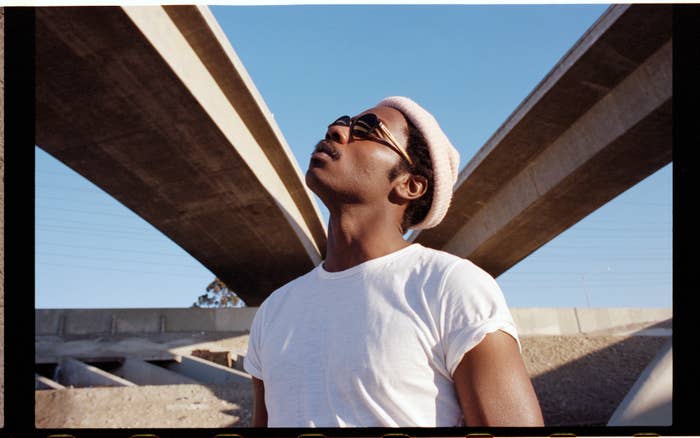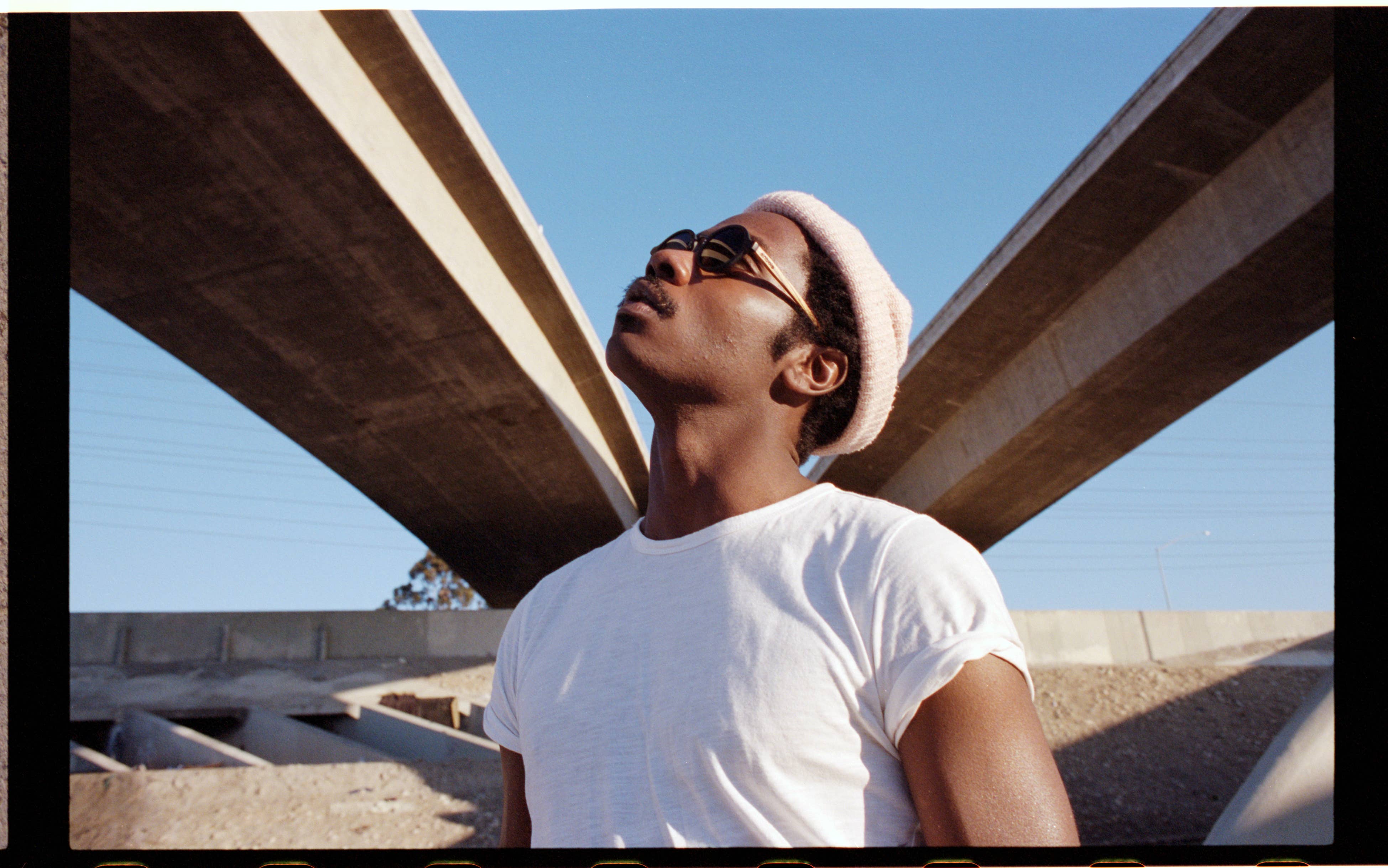
Channel Tres is a Compton-born artist who released his 'Black Moses' EP via Godmode in August. This summer he toured with Childish Gambino, Vince Staples, and Robyn. We asked him if there was a topic he'd like to focus on for a guest editorial, and he chose dance.
When you're dancing, depending on what style you're doing, you can't hold back. You have to get into your hips. You have to feel almost every part of your body. If you hold back because you don't want to move “like a girl,” you’re just missing out on opportunities to do something special with your body, or feel something special with a certain type of music.
I look up to Bobby Brown, Michael Jackson, Prince, Iggy Pop, Elton John, Bruno Mars, Christine and the Queens. I like performers, and I can move. I'm not no pop star—I just like performing and it makes the show more fun for me. I think movement is, for me, an extension of my connection with music. When you're moving your body to music you tap into it in a different way. And it made my connection to my music—and just music in general—deeper. It helped me access a different part of my musicianship.
When bringing my music to life through choreography, each song has a specific situation or character or subject matter. I used to go to a lot of contemporary shows and compose music for dancers while they danced. I hadn’t danced or choreographed since high school, but once I started training for my show it was pretty easy for me to catch on because I just would get into that personality or that character through movement. In rehearsal, my dancers and choreographer accent things I would do naturally when I’m producing. But seeing the way they move their bodies and break down the beat makes me notice little intricacies within the music.
My choreographer Andranita is always saying, “Use your levels, Channel.” Because if I bend my legs a certain way, if I make sure my feet are doing something, then it accents a certain move. And when you’re performing, you have to be more flamboyant and just put on a show. That’s the difference between dancing at a cookout and doing actual choreography. I’m Black—everybody’s always dancing. But there’s more thought and effort when you’re dancing professionally. You access a whole different kind of movement.
Andranita taught me a lot of South African dance movements and things I didn't even know, like Fela Kuti and Afrobeat. The song “Brilliant N*gga”—I love the choreography because it accents so many African moves we're doing. We're doing all different kinds of styles mixed into one. I never really liked Nigerian music or Afrobeat until I started dancing to it, because it's a different beat from what I was used to. I love the movement now, because you're hitting certain different counts—it's just a different way to move.
Right now, it's kind of like I'm going back to my roots. Everybody else in my family were gang bangers and shit. I was just into art. I was playing drums, krump dancing, jerking—everything that I did in high school, it just kind of came back. That's how I was able to tap into dance and my art so naturally, because it was already there. The cool thing about where I'm at now is that I know my body better, and I'm not afraid. Back then, I would hold back. But I have no barriers now.
While I was in college, I studied Prince, Michael Jackson, rock stars like David Bowie, Iggy Pop, and Elton John—a lot of different artists. I was maybe 22, 23, just in college, studying, before I started putting my live show together. At this one point in my life, I was dating this girl attending Alvin Ailey American Dance Theater, so I would go up there and watch [shows] and watch his videos. He's a really, very inspirational figure.
This movement of Black male musicians expressing “femininity” on stage isn’t new to me. I was always comfortable with that side of myself. But I was shy about it because I was afraid of what people would think of me back in the day. That's just growing up in the hood and having that type of mentality over you.
I feel like if you're an artist you’re supposed to push boundaries. Even Kanye West helped me out. I remember I went to go see the Yeezus tour and I was amazed. It was performance art. If I never saw that, maybe I wouldn't even think the way I think, you know?
I wouldn't say I'm an ambassador, but I know that being comfortable with myself will help other people be comfortable with themselves. The whole goal is not to tap into feminine energy. The whole goal is just to bust down that norm. Men cry, you know what I'm saying? Men want to be held. But I think sometimes we're just taught to be so hard, and it makes it difficult for us to access that.
It's important that we do have role models, that we do have people who are breaking these barriers. It's humbling and cool for me to be in this space where I might be one of the ones that people are looking at for inspiration.
CHANNEL TRES 2019 LIVE DATES:
Sept 7 - Aisle 5 - Atlanta, GA
Sept 20 - Hollywood Palladium - Los Angeles, CA*
Sept 26 - Ogden Theatre - Denver, CO*
Oct 30 - First Avenue - Minneapolis, MN*
Oct 31 - Turner Hall Ballroom - Milwaukee, WI*
Nov 1 - Riviera Theatre - Chicago, IL*
Nov 2 - The Majestic - Detroit, MI*
Nov 3 - The Danforth Music Hall - Toronto, CA*
Nov 5 - Théâtre Corona - Montréal, CA*
Nov 6 - House of Blues - Boston, MA*
Nov 8 - Brooklyn Steel - Brooklyn, NY*
Nov 9 - Brooklyn Steel - Brooklyn, NY*
Jan 6-10 - Friendship - CocoCay, Bahamas
*indicates Toro y Moi tour

